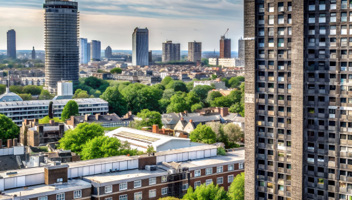Are the views of the UK government on the one hand, and developers and construction product manufacturers on the other, about to reach a climax? What are the latest developments in England and Scotland?
England
Building Safety Bill – wide ranging amendments have been proposed:
- Extension of the new Building Safety Levy
This levy is due to be paid by developers applying for building control approval. Originally it applied to higher-risk buildings only. However, the amendments remove that restriction so that the levy could apply to any residential or mixed-use buildings. - Blocking developers and product manufacturers from the housing market
The amendments could allow the UK government to apply regulations to prohibit “persons of a prescribed description” from carrying out developments in England or applying for building control approval.
This is a very significant proposal. It arises because of a perceived lack of response to the “Gove stepping up plan”. This plan was released in January when Mr Gove wrote to property developers seeking their voluntary commitment to make contributions to a dedicated fund for the removal of unsafe cladding, and to fund and carry out remedial works on buildings they were involved in developing.
Mr Gove stated he would impose “a solution in law” if developers did not comply with his plan. These latest amendments to the Bill are in essence the legal basis for the threatened sanctions against those developers who do not, as Mr Gove says, “step up”.
In March, the Home Builders Federation presented proposals to the government. While these were welcomed, Mr Gove insisted that these did not go far enough and encouraged the HBF to “continue working with my officials to develop these proposals further”. In order to facilitate these discussions, the enforcement of his plan has been delayed by one month to allow developers the chance to reach an agreement on how the rectification of historic cladding defects should be paid for. Read more here. - New amendments have been proposed which would empower a court to make a “building liability order” against companies who are “an associate” of the original company which incurred liability in relation to a building.
- New provisions limiting the exposure of leaseholders from the cost of rectifying historic defects including new remediation orders and service charge caps.
- New provisions that would empower the Secretary of State to impose requirements about new home warranties, including requirements as to the kinds of defects that developers must agree to remedy, the circumstances in which the developer must agree to remedy a defect, the scope of the policy of insurance and the beneficiary's ability to transfer the benefit of the warranty.
- Two interesting deletions have also been proposed: the requirement for a building safety manager on higher risk buildings and the introduction of a separate building safety charge. Responsibility for the safety of the building remains with the accountable person.
These are not final proposals - yet! We will keep you posted.
Scotland
- The consultation on the new Compliance Plan Manager role and increase in enforcement penalties has closed. The responses to this consultation can now be viewed on the Scottish government website.
- There are a variety of UK public funds for historic cladding remediation. The Scottish government was allocated £97 million some time ago. It is not known whether further money will be allocated to Scotland. Will there be enough public funds to fix all the required remedial work? Will there need to a Scottish equivalent to the “Gove stepping up plan”?
- Finally, it is worth noting that the new Residential Developers Tax comes into force on 1 April 2022. This applies across the UK, including Scotland. It targets development companies with profits over £25 million. The money raised from this new tax is due to go into a UK fund for historic cladding remediation. Clarification is needed about whether more funds will be given to Scotland as a result of the new tax.
What next?
England and Scotland have the same problem – a lack of public funds to fix all historic cladding problems. Mr Gove is using the latest amendments to the Building Safety Bill as his plan B if developers do not voluntarily step up. Scotland does not appear to have a plan B – yet.
Related News, Insights & Events

Courts provide guidance on “reasonability” in compensation on termination recovery
A new decision from the Privy Council has provided some guidance on the limits of provisions around the recovery of supply chain costs upon termination for convenience or employer default.

UK government’s response to Grenfell inquiry phase 2 – 10 takeaways
On 26 February 2025, the UK Government published its much anticipated 80-page response to the Phase 2 Report of the Grenfell Tower Inquiry, published in September 2024.

Time for a change: New Scottish time bar law in force 28 February 2025
Significant changes to the Scottish law of time bar are in force on 28 February 2025.





